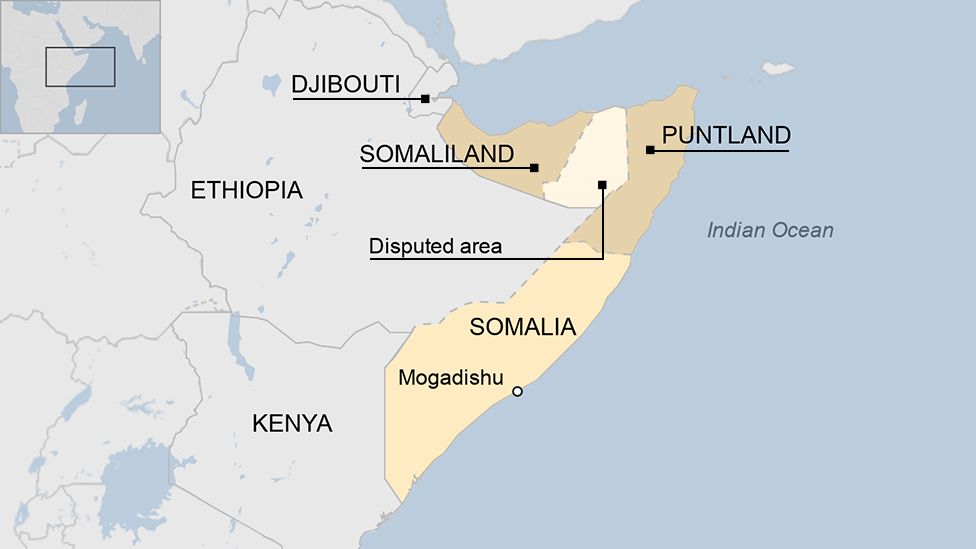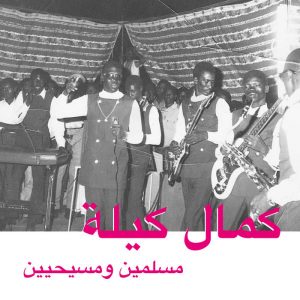Tensions are surging between Ethiopia and Somalia following what the Somali government views as a severe breach of its sovereignty. The conflict stems from Ethiopia signing a memorandum of understanding (MoU) with the Somali breakaway region of Somaliland. As part of the deal, Ethiopia will gain military and commercial access to the Red Sea through the Port of Berbera and some surrounding land in exchange for closer economic relations and a possible future Ethiopian recognition of Somaliland’s independence. The Somali government has responded harshly to this deal, accusing Ethiopia of violating its sovereignty and calling it “null and void.” At the same time, Somaliland’s administration has rejected these claims, stating that the Somali government has no authority over Somaliland’s actions.
The exact contents of the deal signed between Ethiopia and Somaliland remain unpublished; however, it is known to contain clauses which stipulate that Ethiopia will use the Port of Berbera and a 50-year lease of other coastal land to develop a military presence in Somaliland. In exchange, Ethiopia will invest in Somaliland’s infrastructure, Somaliland’s government will gain a stake in Ethiopia’s national airline, and Ethiopia will deeply assess a possible future recognition of Somaliland. This deal is critical for Ethiopia, which lost direct access to the oceans following the secession of Eritrea in 1991. Through the commercial use of the Port of Berbera and the development of naval sites along the Red Sea, Ethiopia would once again gain direct access to the oceans while reducing its reliance on Djibouti, through which 95% of Ethiopian trade travels.
The Somali government has reacted harshly to this deal, but Somalia lacks the necessary military capabilities to stop it. Firstly, Somalia is entrenched in a brutal decades-long counterinsurgency against al Shabaab, a terrorist organization with links to al Qaeda. Meanwhile, the Somali government has little control of any of its territory outside of major cities, with either local governments, clan elders, or al Shabaab controlling much of the country. As such, Somalia can do little more than issue statements condemning the deal and hoping its allies can put enough pressure on Ethiopia to stop it from advancing.
Despite its de-facto independence which has existed since 1991, Somaliland is still internationally recognized as part of Somalia, who recently signed a law stating that the MoU between Somalia and Ethiopia is illegal. Somalia’s claim is bolstered by the Constitutive Act of the African Union (AU), which Ethiopia and Somalia are both members of, as it states that the body is founded on respect for the territorial integrity of states and principles of non-interference. An Ethiopian recognition of Somaliland without approval from Somalia would violate this principle. Furthermore, the League of Arab States has called the move “void, unacceptable, and a violation of international law.” At the same time, actors such as the African Union, Arab League, United Nations, U.S., and U.K. have all signaled support for Somalia, calling on nations to respect the authority of Somalia while still pressing for further negotiations.

President Abdel Fattah El-Sisi of Egypt offered the most direct support for Somalia, hinting at the possibility of Egyptian intervention should the deal proceed. Meanwhile, no regional player has endorsed the agreement while many countries and multilateral institutions have expressed grave concerns over the tensions that the signing of the memorandum has generated. At this point, it is clear that Ethiopia does not have much, if any, international backing. Despite the international backlash against its position, Ethiopia stated that its move is within the scope of international law and that the MoU is essential to Ethiopia securing consistent access to the sea. As such, Ethiopia seems to be stubborn in its intention to follow through with many aspects of the deal.
It is essential to understand the context of Somaliland’s separation from Somalia to understand the significance of the MoU. Somaliland declared independence following a civil war against the government of Siad Barre, the brutal communist dictator who ruled Somalia from 1969 to 1991. During Somaliland’s fight for independence, the Barre regime committed an ethnic cleansing campaign against the population of Somaliland, leading to the deaths of over 50,000 civilians and 500,000 being driven to neighboring Ethiopia. This ethnic cleansing, combined with Somaliland’s previous brief independence in 1960, has led to Somaliland presenting an interesting legal justification for its independence, a reality highlighted by an unpublished African Union (AU) fact-finding mission. The mission’s report states that Somaliland’s brief independence gives it an internationally defined border to anchor its independence claim, an essential prerequisite to gaining recognition. Furthermore, the report argues that Somaliland has the relevant attributes of a modern state in terms of governance while highlighting that the problems faced by Somaliland largely stem from its flawed union with Somalia. However, the legality of a possible Ethiopian recognition of Somaliland remains complicated, and the move would still be primarily seen as illegal under international law.
Since 1991, Somaliland has developed a flawed yet largely successful semi-democratic system of governance, and it has built a shockingly stable security situation. Al Shabaab and pirates have failed to establish a foothold in Somaliland despite being able to operate throughout large portions of Somalia. Furthermore, Somaliland sits in an extremely valuable location along the Bab el Mandeb Strait, and it has an underdeveloped deep water port at Berbera, meaning it has the potential to accommodate large volumes of trade and military activity should the necessary infrastructure be put in place.
Despite its relatively stable political and security environments, Somaliland is not without its flaws. First, it has a weak economy, highlighted by its GDP per capita of $347. Measured against recognized countries, this GDP per capita would be the world’s fourth lowest. According to the same report, Somaliland has a poverty rate of 29%, which puts it on par with neighboring Ethiopia. There is also a stark divide in the standard of living between urban and rural areas. Somaliland’s armed forces face mounting criticism of their handling of unrest in the southern city of Laascaanood, with violence leading to 299 deaths and the displacement of over 200,000 people.
While these, and other, criticisms of Somaliland will certainly affect the international community’s engagements with the territory, they do not represent a permanent hurdle to recognition. Somaliland’s strategic position along the Gulf of Aden, its relative stability, and its deep water port give it immense value to several members of the international community. One prominent example is the United States, to whom Somaliland recently offered military access to the Port of Berbera. However, it must be emphasized that the U.S. and prospective partners beyond Ethiopia favor negotiation with Somalia and seem very unlikely to recognize Somaliland without approval from Mogadishu.
What will become of the deal remains to be seen, but vague wording and heavy international pressure mean that Ethiopia is unlikely to formally recognize Somaliland in the short-term. However, future recognition may still happen, especially if Ethiopia develops the military and trade infrastructure the deal promises. Meanwhile, the future of Somaliland will have ramifications for current norms regarding sovereignty as an Ethiopian recognition without Mogadishu’s approval would represent yet another case of one nation blatantly disregarding the territorial integrity of another. Also, it remains true that according to Ethiopia, the MoU only allows for an in-depth assessment of the possibility of recognition rather than guaranteed recognition. That fact, combined with the large amount of international pressure on Ethiopia to not follow through with the MoU, gives reason to suspect that this situation can be peacefully navigated through diplomatic channels. Somaliland could be a strategically valuable ally to many countries, and negotiated independence is not entirely far-fetched, especially when it is considered that Somaliland has effectively been self-governed for over thirty years. Ultimately, the only certainty is that the course of action chosen by Ethiopia will have serious implications for regional stability and international norms.
Feature Image Source: The Star






Comments are closed.